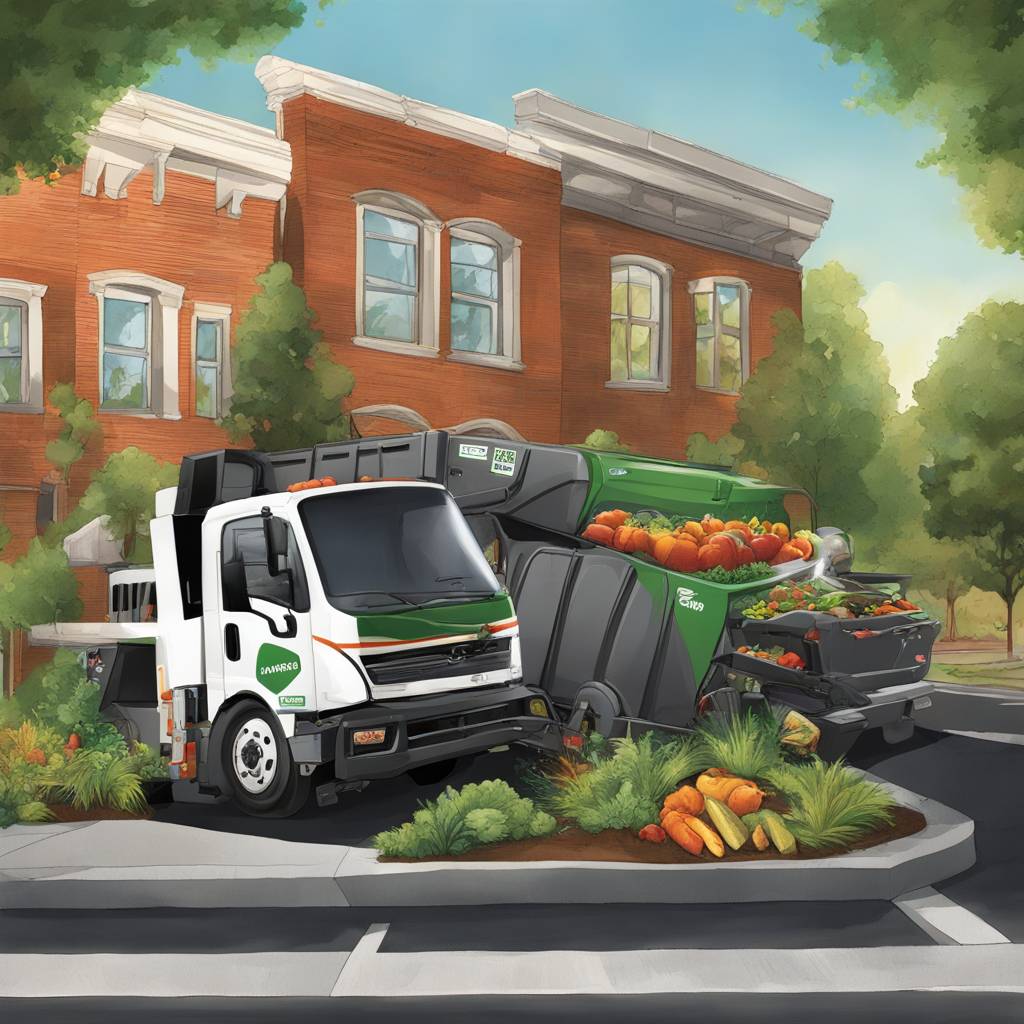Organic household waste typically ends up in landfills, where it generates methane, a potent greenhouse gas. Composting food and garden waste offers an effective solution to reduce methane emissions and combat global warming. A study conducted by the University of Illinois Urbana-Champaign focused on the impact of curbside compost collection programs in New South Wales, Australia. The researchers aimed to measure the effects of these policies on household waste disposal behavior and methane emissions.
Between 2009 and 2015, 24 local government councils in New South Wales implemented curbside services to collect food and garden waste for composting. Households were provided with three bins for general waste, recycling, and organic waste. Information campaigns educated residents on the types of waste accepted in each bin, and some councils even distributed small kitchen caddies to facilitate waste sorting. The study, led by Becca Taylor and Lihini de Silva, analyzed household waste data from annual government reports to assess the success of the compost collection programs.
The research findings indicated that the curbside compost collection programs were highly effective in diverting organic waste from landfills. On average, households redirected 4.2 kilograms of waste to composting, representing 25% of the waste previously sent to landfills. Although some areas allowed both food scraps and garden waste in the green bins, most of the compost generated came from garden waste. The study highlighted the willingness of residents to compost garden waste when provided with the appropriate bins, emphasizing the need for interventions to encourage composting of food waste as well.
Taylor and de Silva estimated that shifting a ton of organic waste from landfills to composting could lead to a reduction in methane emissions ranging from 6% to 26%. However, the results may vary depending on the composting and landfill technologies in use in different locations. The researchers also investigated whether composting affected other recycling or waste amounts, finding no significant effects on recycling rates or the total amount of waste generated. This suggests that while composting plays a crucial role in methane emission reductions, efforts to reduce waste generation are equally important.
Methane emissions play a significant role in global warming, with landfills being the third largest source of human-related methane emissions. Composting organic waste offers a low-cost and impactful strategy to reduce methane emissions, as methane traps heat in the atmosphere about 30 times more effectively than carbon dioxide. By diverting organic waste from landfills, compost collection programs help mitigate global warming without reducing the overall amount of waste generated. Taylor emphasized the importance of sustainable practices, highlighting the need for both recycling and waste reduction efforts to achieve significant emission reductions.
In conclusion, the study underscores the importance of composting organic waste as a means to reduce methane emissions and combat global warming. While curbside compost collection programs have proven successful in diverting waste from landfills, there is still room for improvement in promoting the composting of food waste. The researchers stress the need for continued efforts to reduce waste generation and adopt sustainable practices to achieve greater emission reductions. Overall, composting provides a valuable and practical solution to address the environmental challenges associated with organic waste disposal.













